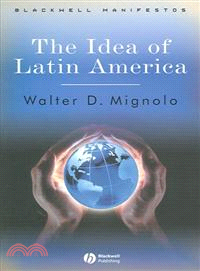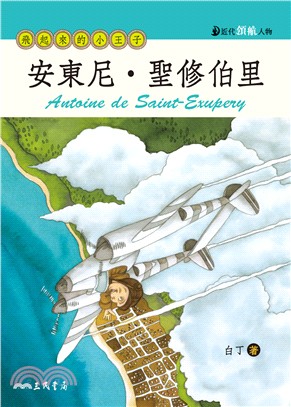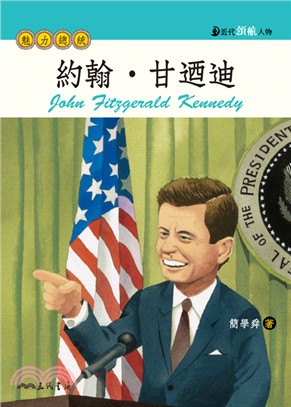The Idea Of Latin America
商品資訊
ISBN13:9781405100861
出版社:John Wiley & Sons Inc
作者:Mignolo
出版日:2005/11/09
裝訂/頁數:平裝/220頁
規格:21.6cm*15.9cm*1.9cm (高/寬/厚)
商品簡介
作者簡介
名人/編輯推薦
目次
相關商品
商品簡介
The Idea of Latin America is a geo-political manifesto which insists on the need to leave behind an idea which belonged to the nation-building mentality of nineteenth-century Europe.
Charts the history of the concept of Latin America from its emergence in Europe in the second half of the nineteenth century through various permutations to the present day.
Asks what is at stake in the survival of an idea which subdivides the Americas.
Reinstates the indigenous peoples and migrations excluded by the image of a homogenous Latin America with defined borders.
Insists on the pressing need to leave behind an idea which belonged to the nation-building mentality of nineteenth-century Europe.
Charts the history of the concept of Latin America from its emergence in Europe in the second half of the nineteenth century through various permutations to the present day.
Asks what is at stake in the survival of an idea which subdivides the Americas.
Reinstates the indigenous peoples and migrations excluded by the image of a homogenous Latin America with defined borders.
Insists on the pressing need to leave behind an idea which belonged to the nation-building mentality of nineteenth-century Europe.
作者簡介
Walter D. Mignolo is William H. Wanamaker Professor and Director of Global Studies and the Humanities at the John Hope Franklin Center for International and Interdisciplinary Studies at Duke University. His recent publications include Local Histories / Global Designs: Coloniality, Subaltern Knowledges and Border Thinking (2000) and The Darker Side of the Renaissance: Literacy, Territoriality and Colonization (1995). He is founder and co-editor of the journal, Disposition, and co-founder and co-editor of Nepantla: Views from the South.
名人/編輯推薦
Winner of the 2006 Frantz Fanon Prize for Outstanding Work in or on the Caribbean Thought in the English Language
“What's in a name? This vigorous, politically engaged essay reveals the 'colonial matrix of power' behind the invention of the term Latin America. A timely and significant contribution to de-colonial theory and to debates about new social movements in the Americas.” John King, Warwick University
“In this gilded age of hyper-theory, and the next big paradigm that supersedes the latest, and the anxiety of not having a paradigm; in this age of theory hyper-inflation, and the furor over the latest missive from the “great masters,” it is mentally refreshing to read a major work that is not burdened by obsequiousness toward the intellectual fashions of the EuroAmerican dominated market place of ideas, and that without great fanfare manages to turn on their head all our assumptions about our place on the map of history and reason. Walter Mignolo’s The Idea of Latin America has elegantly achieved what great manifestos generally accomplish. It has announced the obsolescence of entrenched ways of thinking; it has given us new conceptual and historical narratives; and it has opened up an effaced, ignored, and derogated archive. What is announced in this book is not a new paradigm, but the existence of a type of thinking that has been producing new epistemic sites and weaving counter-narratives that both challenge the claim to universality of EuroAmerican theorizing and that nonetheless explain its origins, political economy, resilience and insidiousness. We simply will not be able to see “America” and “Latin America” in the same way after this book. Brilliantly Mignolo offers this new optics and geopolitics of knowledge by rejecting the epistemic-historical-onto-theological blackmail imposed by EuroAmerican hyper-theory: either Orientalism or Occidentalism. Beyond this imperial Manicheanism of the new, latest, improved Euro-American paradigm, beyond either you are for us (Eurocentrism), or you are against us (Thirdworldism), there is a way of thinking that looks at the geography of reason transversally, across and sideways, and not in terms of time-tables and invidious hierarchies, which allows to think many worlds co-existing in empathic solidarity. On the shelf of those works one thinks with in order to think beyond, where one finds the books of Fanon, Said, C.R. L. James, Shiva, and Retamar, one will now have to put those of Walter Mignolo.” Eduardo Mendieta, Stony Brook University
“What's in a name? This vigorous, politically engaged essay reveals the 'colonial matrix of power' behind the invention of the term Latin America. A timely and significant contribution to de-colonial theory and to debates about new social movements in the Americas.” John King, Warwick University
“In this gilded age of hyper-theory, and the next big paradigm that supersedes the latest, and the anxiety of not having a paradigm; in this age of theory hyper-inflation, and the furor over the latest missive from the “great masters,” it is mentally refreshing to read a major work that is not burdened by obsequiousness toward the intellectual fashions of the EuroAmerican dominated market place of ideas, and that without great fanfare manages to turn on their head all our assumptions about our place on the map of history and reason. Walter Mignolo’s The Idea of Latin America has elegantly achieved what great manifestos generally accomplish. It has announced the obsolescence of entrenched ways of thinking; it has given us new conceptual and historical narratives; and it has opened up an effaced, ignored, and derogated archive. What is announced in this book is not a new paradigm, but the existence of a type of thinking that has been producing new epistemic sites and weaving counter-narratives that both challenge the claim to universality of EuroAmerican theorizing and that nonetheless explain its origins, political economy, resilience and insidiousness. We simply will not be able to see “America” and “Latin America” in the same way after this book. Brilliantly Mignolo offers this new optics and geopolitics of knowledge by rejecting the epistemic-historical-onto-theological blackmail imposed by EuroAmerican hyper-theory: either Orientalism or Occidentalism. Beyond this imperial Manicheanism of the new, latest, improved Euro-American paradigm, beyond either you are for us (Eurocentrism), or you are against us (Thirdworldism), there is a way of thinking that looks at the geography of reason transversally, across and sideways, and not in terms of time-tables and invidious hierarchies, which allows to think many worlds co-existing in empathic solidarity. On the shelf of those works one thinks with in order to think beyond, where one finds the books of Fanon, Said, C.R. L. James, Shiva, and Retamar, one will now have to put those of Walter Mignolo.” Eduardo Mendieta, Stony Brook University
目次
Acknowledgments.
Preface: Uncoupling the Name and the Reference.
1 The Americas, Christian Expansion, and the Modern/Colonial Foundation of Racism.
2 “Latin” America and the First Reordering of the Modern/Colonial World.
3 After “Latin” America: The Colonial Wound and the Geo-Political/Body-Political Shift.
Postface: After “America”.
Notes.
Index
Preface: Uncoupling the Name and the Reference.
1 The Americas, Christian Expansion, and the Modern/Colonial Foundation of Racism.
2 “Latin” America and the First Reordering of the Modern/Colonial World.
3 After “Latin” America: The Colonial Wound and the Geo-Political/Body-Political Shift.
Postface: After “America”.
Notes.
Index
主題書展
更多
主題書展
更多書展今日66折
您曾經瀏覽過的商品
購物須知
外文書商品之書封,為出版社提供之樣本。實際出貨商品,以出版社所提供之現有版本為主。部份書籍,因出版社供應狀況特殊,匯率將依實際狀況做調整。
無庫存之商品,在您完成訂單程序之後,將以空運的方式為你下單調貨。為了縮短等待的時間,建議您將外文書與其他商品分開下單,以獲得最快的取貨速度,平均調貨時間為1~2個月。
為了保護您的權益,「三民網路書店」提供會員七日商品鑑賞期(收到商品為起始日)。
若要辦理退貨,請在商品鑑賞期內寄回,且商品必須是全新狀態與完整包裝(商品、附件、發票、隨貨贈品等)否則恕不接受退貨。
























